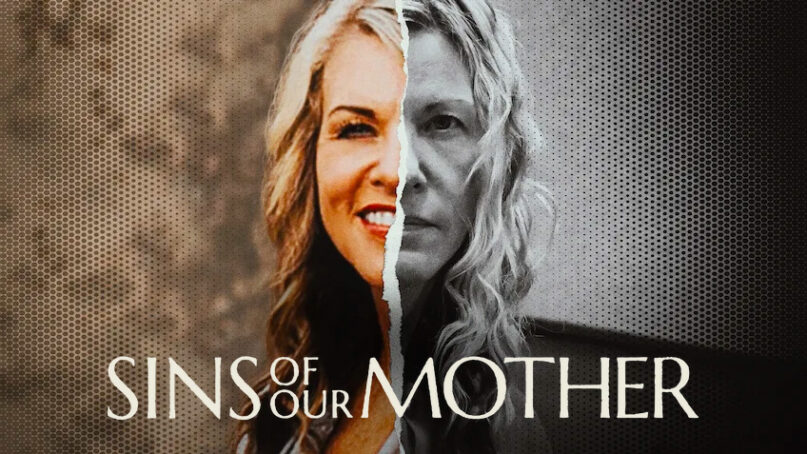(RNS) — In recent years a mounting body of scientific research has examined the relationship between intense spiritual experiences and mental illness. A person may find meaning in an intense religious experience even when bystanders may think unconventional beliefs, perceptions or behavior have crossed a line. The conflict is as old as Joan of Arc, but is a known phenomenon in Buddhist meditation and even yoga.
A new docuseries from Netflix, “Sins of Our Mother,” a chilling addition to the true crime genre, tells the story of Lori Vallow, a member of the Church of Jesus Christ of Latter-day Saints who came to believe she had a spiritual relationship with God that involved regular correspondence with angels. She is now facing trial in the death of two adults and her two children.
Vallow has pleaded not guilty, and no diagnosis of mental illness has been made public, but “Sins of the Mother” raises questions about her religious fervor and how it may be connected to the allegations against her.
Vallow’s son recalls in the series how his mother allowed her devotion to the church to take over their home, with photos of the temple covering the walls. Vallow came to co-host a podcast called “Feel the Fire,” in which she claimed she was receiving regular contact from Moroni, the prophet turned angel who believers say gave LDS founder Joseph Smith the Book of Mormon.
Vallow said she often didn’t sleep because she was awakened so frequently by visions.
Her then-husband, Charles Vallow, converted to Mormonism when they married, but as Vallow’s spiritual experiences intensified, Charles began to disappoint her.
“Lori really wanted a spiritual dynamo in a partner,” her former friend April Raymond says in the documentary.
Vallow met her fifth and current husband Chad Daybell in 2018 at an apocalyptic conference called “Preparing a People.” The two believed their spirits were entwined. He was the “spiritual dynamo” Vallow was looking for.
Vallow and Daybell developed a spiritual ranking system: “D” and “L” denoted the difference between a “dark” and “light” spirit, and a numerical system from one to six indicated the level of each quality.
They also believed in “zombies” who were physically alive but spiritually dead and that their imperative mission was to eradicate all zombies from the Earth. These beliefs, authorities say, played a large role in the deaths of those close to her.
“A lot of these beliefs (Vallow and Daybell) had are classic psychotic beliefs,” said Ari Brouwer, a Ph.D. student at the University of Wisconsin who studies the overlap of spirituality, psychosis and psychedelics. “Like the idea that someone you know is an imposter and some other spirit or person is in their body.”
The year after they met, Vallow’s ex-husband Charles, who, Vallow claimed, had been possessed by an evil spirit, was shot and killed by her brother. Not long afterward, Daybell’s wife, Tammy, was attacked in her driveway and two weeks later died in her sleep.
Vallow had ranked her daughter Tylee a “4.1D” — but her adopted son J.J. a “4.2L.” After they had been officially missing for months, police found both the children’s bodies burned and buried in shallow graves outside Vallow and Daybell’s home.
Spiritual delusions rarely result in crime, and more rarely represent a risk of harm to others. Intervening because Vallow was hanging posters or even having visions of an angel might have felt like overreaction. But Brouwer said that’s probably what was required. “One of the things that struck me was some people not recognizing these signs of risk of psychosis. It was just a shame because it should have been caught much sooner,” said Brouwer.
The other unfortunate turn was Vallow’s encounter with Daybell. “If instead of meeting Chad,” said Brouwer, “she met a more laidback spiritual adviser that was like, ‘Let’s not get ahead of ourselves. Make sure you get sleep. Let’s be humble. Everyone’s equal under God’s eyes. You’re special, but you’re not more special than other people.’ I don’t see her development the way it is as inevitable.”
Vallow and Daybell are currently in prison awaiting a trial scheduled for January that could be delayed after Daybell recently filed a motion to separate his trial from his wife’s. Prosecutors are seeking the death penalty for Vallow.
Beyond a letter from its First Presidency advising LDS leaders to avoid involvement in legal proceedings, the church has offered no official comment on Vallow and Daybell’s case, nor the new series. Julie Rowe, an author who shared Daybell’s belief system and collaborated with him on some books, was excommunicated from the LDS Church in 2019.
The Netflix series is not intent on blaming Lori and Chad’s religion, or people who hold apocalyptic spiritual beliefs, though it doesn’t hold back on the ideas that motivated them either. And certainly, there’s plenty in “Sins of Our Mother” to keep viewers’ attention without going into the history of spiritual visionaries or ascribing her behavior to any faith.
Nor does Brouwer think that unconventional beliefs necessarily make anyone dangerous.
“I think an important factor in Lori’s case was what I sometimes call a spiritual addiction, where someone really gets wrapped up in those experiences and how important it makes them feel,” Brouwer said. “I mean, all the people who listened to that podcast and went to those conferences at least vaguely agreed on this way of perceiving the world. That doesn’t qualify as insanity.”
This story has been updated.





